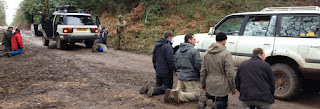Acts 12:18 – 23 documents Herod’s response to God’s miraculous release of Peter from Herod’s maximum security lock up. He pitched a fit. He executed the 16 guard. When the world and its systems do not get their way, they lash out violently.

Herod was arrogant. He thought that God was not a real issue. He saw himself as a god. In his case, God took him out in mid-sentence. Herod suffered the same fate as those whom he used to stand against God, the guards he executed. Those who place themselves over God are destroyed unless God draws them. All who reject the relationship God offers, are placing themselves over God in that they are saying that He is irrelevant and not needed in their life. They are autonomous, the poem Invictus, which I really like, is a prime example of that attitude.
Out of the night that covers me,
Black as the pit from pole to pole,
I thank whatever gods may be
For my unconquerable soul.
In the fell clutch of circumstance
I have not winced nor cried aloud.
Under the bludgeonings of chance
My head is bloody, but unbowed.
Beyond this place of wrath and tears
Looms but the Horror of the shade,
And yet the menace of the years
Finds, and shall find me, unafraid.
It matters not how strait the gate,
How charged with punishments the scroll,
I am the master of my fate:
I am the captain of my soul.
Henley, William Ernest (1888). A book of verses. London: D. Nutt. pp. 56–57. OCLC 13897970
As good as this is, it describes a life committed to self and self-determination as opposed to trust and dependence on God. It is our nature to live this way. It appeals to us. 2 Chronicles 36:16 reminds us that while God is one of patience, grace, and mercy; there is a limit to the latitude He gives us. We do well to respond to Him before the last clause of that passage… “until there is no remedy.”

Herod was arrogant. He thought that God was not a real issue. He saw himself as a god. In his case, God took him out in mid-sentence. Herod suffered the same fate as those whom he used to stand against God, the guards he executed. Those who place themselves over God are destroyed unless God draws them. All who reject the relationship God offers, are placing themselves over God in that they are saying that He is irrelevant and not needed in their life. They are autonomous, the poem Invictus, which I really like, is a prime example of that attitude.
Out of the night that covers me,
Black as the pit from pole to pole,
I thank whatever gods may be
For my unconquerable soul.
In the fell clutch of circumstance
I have not winced nor cried aloud.
Under the bludgeonings of chance
My head is bloody, but unbowed.
Beyond this place of wrath and tears
Looms but the Horror of the shade,
And yet the menace of the years
Finds, and shall find me, unafraid.
It matters not how strait the gate,
How charged with punishments the scroll,
I am the master of my fate:
I am the captain of my soul.
Henley, William Ernest (1888). A book of verses. London: D. Nutt. pp. 56–57. OCLC 13897970
As good as this is, it describes a life committed to self and self-determination as opposed to trust and dependence on God. It is our nature to live this way. It appeals to us. 2 Chronicles 36:16 reminds us that while God is one of patience, grace, and mercy; there is a limit to the latitude He gives us. We do well to respond to Him before the last clause of that passage… “until there is no remedy.”







































